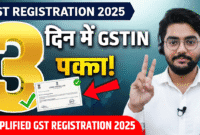UPSC 2025 Preparation Civil Services Examination भारत की सबसे प्रतिष्ठित और challenging परीक्षाओं में से एक है। यह exam IAS, IPS, IFS, IRS जैसी prestigious government services का gateway माना जाता है। हर साल लाखों उम्मीदवार इस परीक्षा में शामिल होते हैं, लेकिन सिर्फ कुछ हजार ही सफल हो पाते हैं।
अगर आप UPSC 2025 में success हासिल करना चाहते हैं, तो सही strategy, focused preparation, और consistent efforts ही आपको सफलता दिला सकते हैं। यह UPSC 2025 Preparation Guide आपको exam pattern, syllabus, best study material, time management tips, toppers’ strategies और complete preparation roadmap के बारे में विस्तार से जानकारी देगी।
Related Articles:
UPSC 2025 Preparation – Important Dates & Exam Timeline
UPSC ने आधिकारिक रूप से 2025 Exam Calendar जारी कर दिया है। नीचे UPSC 2025 Preparation से जुड़ी सभी important dates और exam timeline दी गई हैं, ताकि आप अपनी तैयारी सही दिशा में प्लान कर सकें।
Application और Admission के लिए:
- UPSC Notification Release: 22 जनवरी 2025
- Application Portal खुलना: 22 जनवरी 2025
- Application जमा करने की last date: 11 फरवरी 2025
- Correction window: 12-18 फरवरी 2025
- Prelims Admit Card: 13 मई 2025
Exam Dates:
- Prelims Exam: 25 मई 2025 (रविवार)
- Prelims Result: 11 जून 2025 (अनुमानित)
- Mains Application (DAF-I): 16-25 जून 2025
- Mains Exam: 22, 23, 24, 30, 31 अगस्त 2025 (कुल 5 दिन)
- Mains Admit Card: 14 अगस्त 2025
- Interview/Personality Test: जनवरी-फरवरी 2026 (अनुमानित)
- Final Result: अप्रैल-मई 2026 (अनुमानित)
Total Vacancies 2025: 979 posts विभिन्न services के लिए
इस साल Prelims exam तक आपके पास limited time है, इसलिए systematic planning और focused preparation बहुत जरूरी है।
UPSC Exam Pattern समझिए – तीन Stages की विस्तृत जानकारी
UPSC Civil Services Examination तीन stages में conduct होती है:
Stage 1: Prelims (Screening Examination)
Prelims एक filtering stage है जिससे Mains के लिए eligible candidates select होते हैं। इसमें 2 papers होते हैं:
Paper 1 – General Studies (GS):
- Total Marks: 200
- Questions: 100 MCQs
- Duration: 2 घंटे
- Negative Marking: 1/3 (0.66 marks per wrong answer)
- Content: Current Affairs, History, Geography, Polity, Economy, Science, Environment आदि
Paper 2 – CSAT (Civil Services Aptitude Test):
- Total Marks: 200
- Questions: 80 MCQs
- Duration: 2 घंटे
- Negative Marking: 1/4 (0.83 marks per wrong answer)
- Content: Comprehension, Logic, Decision Making, Basic Numeracy, Data Interpretation
- Important: यह Paper सिर्फ qualifying है (33% marks चाहिए), final merit में add नहीं होता।
Prelims में overall 400 marks होते हैं, लेकिन Mains के merit list में Prelims के marks add नहीं होते। Prelims सिर्फ Mains तक पहुंचने का ticket है।
Stage 2: Mains (Main Written Examination)
Mains ही वह stage है जहाँ actual selection होता है। इसमें कुल 9 papers होते हैं, लेकिन 7 papers का marks final merit में count होता है।
Qualifying Papers (Merit में count नहीं):
- Paper A – Indian Language (कोई भी authorized Indian language): 300 marks
- Paper B – English: 300 marks
- Minimum 25% marks (75 marks) जरूरी है, वरना बाकी papers evaluate ही नहीं होंगे।
Merit Papers (Final result के लिए count होते हैं):
| Paper | Subject | Marks | Duration |
|---|---|---|---|
| Paper I | Essay | 250 | 3 घंटे |
| Paper II | GS-I (History, Culture, Geography, Society) | 250 | 3 घंटे |
| Paper III | GS-II (Polity, Constitution, Governance, International Relations) | 250 | 3 घंटे |
| Paper IV | GS-III (Economy, Technology, Environment, Security) | 250 | 3 घंटे |
| Paper V | GS-IV (Ethics, Integrity, Aptitude) | 250 | 3 घंटे |
| Paper VI | Optional Subject – Paper 1 | 250 | 3 घंटे |
| Paper VII | Optional Subject – Paper 2 | 250 | 3 घंटे |
Total Mains Merit Marks: 1750
Mains की key चीज़ है answer writing की quality, depth of knowledge, और structure। यहाँ objective questions नहीं, बल्कि descriptive answers लिखने होते हैं।
Stage 3: Interview/Personality Test
- Total Marks: 275
- Duration: Approx 20-30 minutes (प्रति candidate)
- Panel: 4-5 UPSC officers
- Focus: Personality assessment, communication skills, decision making, knowledge breadth
Final Merit List बनना:
Final merit = Mains marks (1750) + Interview marks (275) = 2025 marks
UPSC Syllabus 2025 – क्या पढ़ें, कितना पढ़ें
UPSC का syllabus इतना vast है कि बिना planning के आप overwhelmed हो सकते हैं। यहाँ detailed breakdown दी गई है:
Prelims GS Paper में शामिल:
1. Current Affairs (National & International): Latest news, events, policies
2. Indian History: Ancient, Medieval, Modern India, Freedom Struggle
3. Geography: India & World Geography, Physical Geography, Human Geography
4. Indian Polity & Governance: Constitution, Rights, Government structure, Judiciary
5. Economy: Micro & Macro Economics, Government Schemes, Development
6. Social Issues: Poverty, Education, Health, Gender, Marginalization
7. General Science: Physics, Chemistry, Biology (Class 10 level)
8. Environment & Ecology: Biodiversity, Climate Change, Conservation
Prelims CSAT Paper में शामिल:
1. Comprehension: Reading and understanding passages
2. Logical Reasoning: Analytical skills, patterns, reasoning
3. Decision Making: Problem-solving scenarios
4. Basic Numeracy: Percentages, ratios, averages, simple calculations
5. Data Interpretation: Charts, graphs, tables को समझना
Mains में क्या-क्या Cover करना है:
GS Paper 1: Indian heritage, culture, history, geography, society में changes
GS Paper 2: Constitution, governance, rights, political system, international relations
GS Paper 3: Economic development, technology, environment, disaster management, security
GS Paper 4: Ethics, integrity, aptitude, case studies, human values
Optional Subject: 48 से अधिक subjects में से कोई एक चुन सकते हैं।
UPSC 2025 के लिए Best Books – Complete Reading List
NCERT Books (Foundation के लिए Must)
NCERT books conceptual clarity provide करती हैं। सभी standard books NCERT पर ही based होती हैं। इसलिए पहले NCERTs को thoroughly पढ़ें:
- History: NCERT Class 6-12 (सभी books)
- Geography: NCERT Class 6-12
- Polity: NCERT Class 9-12
- Economy: NCERT Class 9-12
- Science: NCERT Class 6-12
कम से कम 2-3 बार NCERTs पढ़ें। हर एक पढ़ने के साथ नई चीज़ें समझ आती हैं।
Subject-wise Standard Books (Prelims & Mains दोनों के लिए)
History:
- “India’s Struggle for Independence” – Bipan Chandra
- “A Brief History of Modern India” – Spectrum/Rajiv Ahir
- “Ancient India” – RS Sharma
- “Medieval India” – Satish Chandra
Geography:
- “Certificate Physical & Human Geography” – GC Leong
- “India’s Geography” – Majid Husain
- “Oxford Student Atlas of India”
Indian Polity:
- “Indian Polity” – M. Laxmikanth (UPSC के लिए सबसे best book)
- “Constitutional Law of India” – सीधे Constitution से पढ़ें
Economy:
- “Indian Economy” – Ramesh Singh (Prelims और Mains दोनों के लिए)
- Economic Survey (सरकार द्वारा publish होता है, हर साल)
- “Micro Economics” – Class 11-12 NCERT
Environment & Ecology:
- Environment & Ecology – Drishti IAS/Shankar IAS (custom materials)
- NCERT Science books से relevant chapters
Ethics (GS Paper 4):
- “Ethics, Integrity & Aptitude” – Lexicon Publications
- NCERT Textbooks in Social Science
General Science:
- NCERT Class 6-12 Science
- “Lucent’s General Knowledge” (additional reference)
Current Affairs:
- “The Hindu” newspaper (daily reading essential)
- “Indian Express” (analysis-heavy, slightly advanced)
- “Yojana” और “Kurukshetra” magazines (PIB द्वारा publish)
- Monthly current affairs compilations (Vision IAS, Forum IAS आदि)
Optional Subject के लिए Books
Popular optional subjects के लिए recommended books:
Geography (बहुत popular है):
- “Physical Geography” – Savindra Singh
- “Human & Economic Geography” – Majid Husain
Public Administration:
- Various books by authors like TP Dey, Prasad, Fadia
History:
- NCERT books + additional reference materials
Sociology:
- “Introducing Sociology” – Anthony Giddens
- IGNOU materials
UPSC 2025 Preparation Strategy – Month by Month
Months 1-2: Foundation Phase (शुरुआती महीने)
क्या करना है:
- NCERT Class 6 से शुरू करके 12 तक systematically पढ़ें।
- हर subject के लिए basic notes बनाएं।
- Newspaper reading का habit डालें (कम से कम 1 hour रोज़)।
- Current affairs को monthly compile करना शुरू करें।
Focus: Conceptual clarity बनाना, foundation strong करना
Months 3-4: Deepening Phase
क्या करना है:
- Standard books की reading शुरू करें (एक विषय एक बार)।
- Detailed और organized notes बनाएं।
- Previous year questions देखकर pattern समझें।
- Current affairs का revision करते रहें।
Focus: Content को deeply understand करना, notes का quality improve करना
Months 5-6: Integration & Revision
क्या करना है:
- सभी subjects को revise करना शुरू करें।
- Notes को और concise बनाएं (revision के लिए)।
- Mock tests देना शुरू करें।
- Optional subject select करके उसकी deep study शुरू करें।
Focus: Revision, integration, mock tests से experience gain करना
Months 7-8: Intensive Mains Preparation
क्या करना है:
- Answer writing practice शुरू करें (daily 2-3 answers)।
- Essay writing में focus करें (1-2 essays weekly)।
- Mains test series ज़रूर join करें।
- Optional subject को complete करें।
Focus: Answer writing quality, time management, test series
Months 9-10: Revision & Mock Tests
क्या करना है:
- Previous Year Papers (PYPs) solve करें।
- Weak areas को identify करके strengthen करें।
- Full-length mock tests दें (हर हफ्ते)।
- Current affairs का continuous revision।
Focus: PYPs, weak areas की strengthening, mock tests
Months 11-12: Final Polishing
क्या करना है:
- Final revision cycle में जाएं।
- Speed और accuracy improve करें।
- Interview preparation शुरू करें (छोटे level पर)।
- Stress management और health को priority दें।
Focus: Final polishing, confidence building
Effective Time Management – Daily Routine
Recommended Daily Study Hours: 6-8 घंटे focused study
Sample Daily Schedule:
| Time | Activity | Duration |
|---|---|---|
| 6:00-7:00 AM | Exercise/Yoga/Health | 1 hour |
| 7:00-8:00 AM | Breakfast + Rest | 1 hour |
| 8:00-10:00 AM | Newspaper + Current Affairs | 2 hours |
| 10:00-12:00 PM | Core GS Subject (1-2 hours each) | 2 hours |
| 12:00-1:00 PM | Break/Light lunch | 1 hour |
| 1:00-3:00 PM | GS Subject continuation या Optional | 2 hours |
| 3:00-4:00 PM | CSAT/MCQs/Previous Year Papers | 1 hour |
| 4:00-5:00 PM | Break/Evening walk/Snack | 1 hour |
| 5:00-7:00 PM | Revision/Notes consolidation | 2 hours |
| 7:00-8:00 PM | Dinner + Rest | 1 hour |
| 8:00-10:00 PM | Optional Subject/Essay Writing/Mock Test | 2 hours |
| 10:00 PM onwards | Sleep/Rest | Essential |
Weekly Pattern:
- 6 दिन focused study
- 1 दिन (Sunday या कोई एक दिन) light revision, rest, family time
UPSC Toppers की Winning Strategies
1. Consistency से बेहतर कुछ नहीं
Successful candidates हर रोज़ study करते हैं, कोई excuses नहीं। हो सकता है कभी-कभी कम study हो, लेकिन बिल्कुल भी न करना—ये करते हैं।
2. Revision की Power को समझें
Toppers कम से कम 5-7 बार अपने notes को revise करते हैं। नई books पढ़ने से बेहतर है same content को बार-बार effectively revise करना।
3. Concise और Organized Notes बनाएं
Detailed notes बहुत बड़े हो जाते हैं और revision में समय लगता है। Bullet points, diagrams, mindmaps use करके notes को concise रखें।
4. Answer Writing को Seriously लें
Mains में 70% failure rate का कारण poor answer writing है। Daily practice करें, senior guides या mentors से feedback लें, अपने writing style को perfect करें।
5. Current Affairs को Static Topics से Link करें
Current affairs सिर्फ जानना काफी नहीं। उसे static GS topics से connect करें। Example: Budget news को Economics से link करें, या नई international treaty को International Relations से।
6. Mock Tests से Process Learning करें
Mock tests सिर्फ marks जानने के लिए नहीं। हर mock के बाद detailed analysis करें—कौन से questions गलत हुए, क्यों गलत हुए, कैसे improve करें।
7. Optional Subject Selection बहुत महत्वपूर्ण है
Optional में अच्छे marks आ सकते हैं अगर सही subject चुनें। अपनी graduation background, interest और latest marking trends देखकर चुनें। High-scoring optionals: Geography, Anthropology, Public Administration, Sociology।
8. Health और Mental Well-being को Priority दें
Over-studying और stress से body weak हो जाता है। Regular exercise, adequate sleep (7-8 hours), meditation और balanced diet maintain करें।
9. Study Material को Limit रखें
बहुत सारी books पढ़ने से confusion होता है। 2-3 standard books + NCERT + good notes = sufficient है।
10. अपने Mistakes से सीखें
हर failure एक learning opportunity है। Mistakes को emotionally नहीं, analytically देखें और उनसे सीखें।
UPSC में Common Mistakes – इनसे बचें
1. Syllabus से बाहर जाना: बहुत candidates UPSC syllabus से भी परे reading करते हैं, जो समय बर्बाद है।
2. CSAT को Ignore करना: CSAT qualifying है, लेकिन अगर इसमें अच्छे marks न आएं तो Prelims ही clear नहीं होगा।
3. Revision न करना: पढ़ने के बाद revise न करना सबसे बड़ी mistake है। NCERTs को भी कम से कम 3 बार revise करें।
4. Answer writing को Skip करना: Mains की तैयारी सिर्फ knowledge से नहीं होती। Daily answer writing practice जरूरी है।
5. Mock tests न देना: Practice के बिना exam hall में confidence नहीं आएगी। हर हफ्ता कम से कम 1 full-length mock test दें।
6. Stress और Burnout: Over-studying से mental और physical health suffer करती है। Balance maintain करें।
7. Current affairs का कोई track न रखना: Prelims में 20-25% questions current affairs से आते हैं। Monthly compilation अवश्य बनाएं।
UPSC के लिए Free Resources और Sources
Free Study Material:
- NCERT books और PDFs (official website से download करें)
- Previous Year Question Papers (UPSC official website)
- Economic Survey (Finance Ministry website)
- Yojana और Kurukshetra magazines (PIB website)
- PRS India की legislative tracking materials
Free Online Courses और Lectures:
- YouTube channels: Study IQ, Drishti IAS, Vajiram & Ravi, Karol Classes
- Government websites: NITI Aayog, Ministry of External Affairs
- IGNOU materials (online accessible)
Paid Resources (Optional but recommended):
- Test series: Vision IAS, Forum IAS, Insights IAS
- Current affairs compilation: Monthly magazines और online platforms
- Coaching materials: Vajiram & Ravi, Drishti, Vision IAS
UPSC 2025 को Crack करने के लिए Final Words
UPSC 2025 की तैयारी challenging है, लेकिन impossible नहीं। सही strategy, dedicated efforts, consistent approach और positive mindset से आप ज़रूर successful हो सकते हैं।
याद रखें:
- NCERT से शुरू करें, standard books से आगे बढ़ें।
- Daily revision को priority दें।
- Answer writing को सीरिजली लें।
- Mock tests में participation अनिवार्य है।
- Health और mental well-being को maintain करें।
- Consistency ही success की key है।
Prelims 25 मई 2025 को है। अभी समय है, इसलिए आज से ही शुरू करें। Hard work, smart work और dedication से UPSC को crack करना possible है। UPSC 2025 Preparation
All the best for UPSC 2025! Stay focused, stay consistent, achieve your dream of becoming an IAS/IPS officer!


